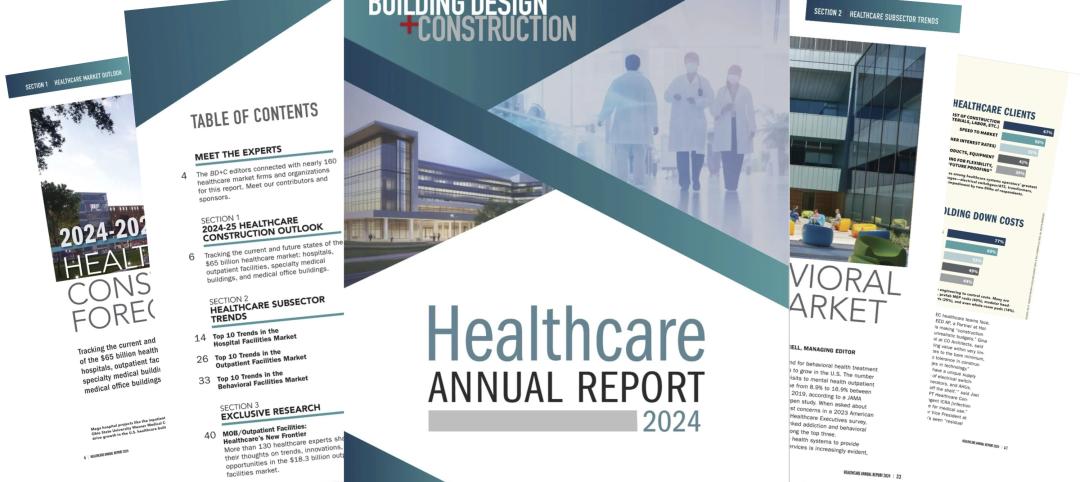Companies are realizing the importance and benefits of supply chain management to boost service, improve financials, and reduce operating costs. Efficient supply chains enable companies to be more competitive in the marketplace. Effective supply chain organizations are designed to deliver goods and services fast, cost effectively, and without compromising quality. Optimized and modern supply chain organizations align strategically with end-to-end business processes, realizing market and economic value and providing a competitive business advantage.
CBRE’s Project Management (PJM) platform delivers exceptional outcomes through its strategic supplier partner program, FUSION. With an estimated annual project spend nearing $75 billion globally, CBRE PJM relies on the value of the FUSION program to provide:
• Exceptional project delivery
• Accelerated completion of various capital expenditure projects
• Harnessed buying power of CBRE collectively
• Best-value solutions
Delivering Exceptional Outcomes
Organizations are often consumed with low-cost solutions. Although cost savings are appealing, it’s important to consider a holistic approach to offering best-value and total cost of ownership. If procured goods or services are predicated on unit price alone, there is a myriad of ancillary benefits that most strategic suppliers struggle to offer due to the inability to scale and invest with the needs of the business, or as demand fluctuates. In fact, average acquisition costs account for roughly 20–35% of total cost for most products and services. The balance and majority of total cost is comprised of costs associated to operations, training, maintenance, warehousing, environmental, quality, transportation, and consideration for the salvage value. By contrast, the FUSION program is a tool to enhance operational performance and ensure objectives are met on time and under budget. The program is extremely flexible with client needs allowing project-based solutions to offer the most favorable outcomes. FUSION is not only a mechanism to leverage spend, but a marketplace differentiator built by purchasing category and on the comprehensive foundation of:
• Speed to market
• New product innovation
• New product development
• Increased quality
• Best cost options
• Turnkey solutions
• Program scale
Early Engagement
With sufficient planning and early supplier engagement on projects, FUSION can maximize savings potential and accelerate project completion without compromising quality results. To capitalize on the benefits the program can offer, it’s critical to engage FUSION supplier partners at the onset of project design, or as initiatives are being conceived within architect and engineering (A/E) organizations in the planning phase.
Generally, optimal value is realized when early supplier engagement is employed at the first stages of concept development. An organization’s competitiveness depends on the amount, quality, cost, and timing of its materials and supplies, and the effectiveness of its supply chain. Factors include:
• Materials
• Prototypes
• Value-engineering
• Manufacturing processes
• Packaging
• Logistics
Considered a fundamental activity, CBRE actively engages its suppliers early as 80% of product costs are identified and committed to during the design phase.
Cost Savings
Hard cost savings and avoidances are paramount to any organization seeking to optimize its supply chain, but also to deliver value-added goods and services. With an emphasis on supplier relationship management in critical spend areas, FUSION supplier partners not only create sustained value for clients but constantly seek continuous improvement opportunities to develop a shared strategy and roadmap that include savings initiatives, new product offerings/development, and end-of-life materials. This collaborative approach lends itself well to delivering additional benefits that include:
• Extended warranties
• Extended payment terms
• Product availability and consistency
• Life-cycle services (sustainability initiatives)
• Reduction of operating costs
The ability to deliver double-digit cost reductions from one category of spend to the next has a profound impact on capital budgets and client outcomes. FUSION’s strategic supplier-partner program is heavily focused on various metrics including key performance indicators (KPIs), service level agreements (SLAs), continuous benchmarking, and spend analysis to deliver the greatest client experience with the most positive result.
Proactively Managing the Program
It’s important, if not critical, to ensure effectiveness measurements are in place to reflect the organization’s strategic contribution. As FUSION evolves, CBRE is continuously seeking to identify and deploy additional baseline metrics within the program. Which allows a more personalized approach in delivering metrics that tie back to each individual client, tailoring the output based on their needs.
Conversely, taking a “one-size fits all” approach may result in poor supplier performance and miss the mark on key client objectives and expected outcomes. These supplier measurement indicators will help create a cadence and sense of accountability that expands upon the day-to-day process, becoming more strategic in nature. Some examples used inside of the FUSION program include:
• Proportion of suppliers participating in early product design or other joint value-added activities
• Supplier lead-time indicators
• Savings achieved using the sourcing program
• Supplier quality levels, cost performance, and delivery performance compared to other world-class performance targets
• Best practices for supplier performance improvement
The outcome of proactively measuring on a continual basis will result in a program that can deliver strategic value from one project to the next, but also serve as a benchmark to assess current and future state needs and trends.
Conclusion
FUSION will evolve over time as CBRE’s corporate business needs and objectives continue to shift in support of its clients’ needs from a regional and global perspective. CBRE will continue to listen intently to its clients, solving various challenges and providing ultimate client solutions. FUSION, as a program and client delivery mechanism, is equally as adept in responding to those ever-changing needs through a best-value solution. Remember, early supplier engagement is crucial to not only create sustained value for clients but to also discover continuous improvement opportunities and cost savings initiatives.
About the Author
Terry Doumkos is the Global Leader of Strategic Sourcing Project Management and Global Leader of CBRE’s FUSION Program.
Related Stories
Codes and Standards | Jul 15, 2024
New York City code update changes definition of a major building
Changes affecting how construction projects in New York City are permitted will have significant impacts for contractors. On Dec. 11, the definition of a major building in the city’s code will change from 10 stories to seven, or 75 feet. The change will affect thousands more projects.
Adaptive Reuse | Jul 12, 2024
Detroit’s Michigan Central Station, centerpiece of innovation hub, opens
The recently opened Michigan Central Station in Detroit is the centerpiece of a 30-acre technology and cultural hub that will include development of urban transportation solutions. The six-year adaptive reuse project of the 640,000 sf historic station, created by the same architect as New York’s Grand Central Station, is the latest sign of a reinvigorating Detroit.
University Buildings | Jul 11, 2024
3 considerations for designing healthy, adaptable student dining
Amanda Vigneau, IIDA, NCDIQ, LEED ID+C, Director, Shepley Bulfinch, shares three ways student dining facilities have evolved to match changes in student life.
Healthcare Facilities | Jul 11, 2024
New download: BD+C's 2024 Healthcare Annual Report
Welcome to Building Design+Construction’s 2024 Healthcare Annual Report. This free 66-page special report is our first-ever “state of the state” update on the $65 billion healthcare construction sector.
Transit Facilities | Jul 10, 2024
Historic Fresno train depot to be renovated for California high speed rail station project
A long-shuttered rail station in Fresno, Calif., will be renovated to serve as the city’s high speed rail (HSR) station as part of the California High-Speed Rail Authority system, the nation’s first high speed rail project. California’s HSR system will eventually link more than 800 miles of rail, served by up to 24 stations.
Government Buildings | Jul 8, 2024
GSA adopts new accessibility guidelines for federal properties
The U.S. General Services Administration (GSA) adopted a new rule with new accessibility guidelines for federal buildings. The rule establishes that pedestrian facilities in the public right-of-way are readily accessible to and usable by people with disabilities.
Office Buildings | Jul 8, 2024
Office vacancy peak of 22% to 28% forecasted for 2026
The work from home trend will continue to put pressure on the office real estate market, with peak vacancy of between 22% and 28% in 2026, according to a forecast by Moody’s.
Virtual Reality | Jul 8, 2024
Can a VR-enabled AEC firm transform your project?
With the aid of virtual reality and three-dimensional visualization technologies, designers, consultants, and their clients can envision a place as though the project were in a later stage.
Green | Jul 8, 2024
Global green building alliance releases guide for $35 trillion investment to achieve net zero, meet global energy transition goals
The international alliance of UK-based Building Research Establishment (BRE), the Green Building Council of Australia (GBCA), the Singapore Green Building Council (SGBC), the U.S. Green Building Council (USGBC), and the Alliance HQE-GBC France developed the guide, Financing Transformation: A Guide to Green Building for Green Bonds and Green Loans, to strengthen global cooperation between the finance and real estate sectors.
Codes and Standards | Jul 8, 2024
New York State building code update would ban fossil fuels in new buildings
New York’s Building Code Council is set to include the All-Electric Buildings Act in its 2025 code update. The Act would ban natural gas and other fossil fuels in new buildings.

















